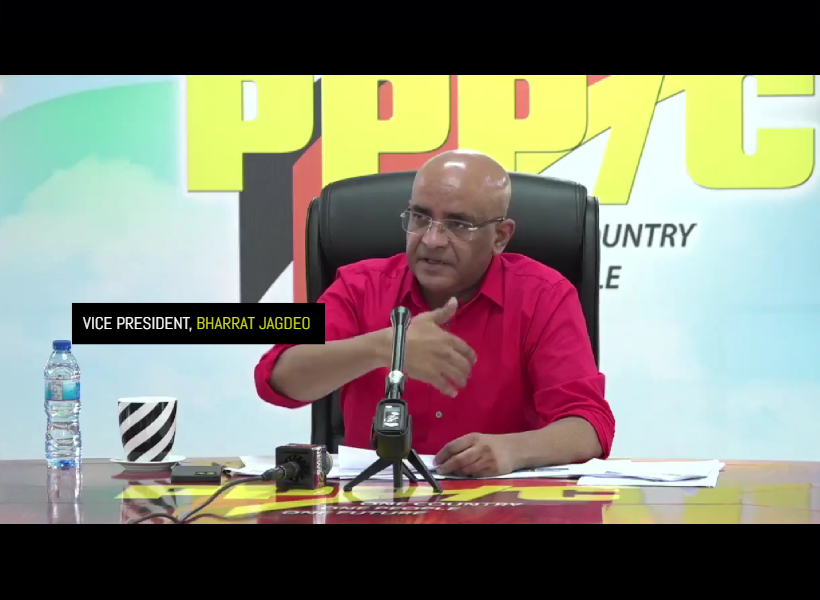Vice President, Bharrat Jagdeo, during his press conference today, announced that the Government of Guyana is deeply interested and is actively seeking to collaborate with Suriname on gas infrastructure development, following the recent Final Investment Decision (FID) by TotalEnergies for Suriname’s landmark “GranMorgu” oil project.
“We were pleased for Suriname that they actually have been able to get an FID now, and they can move forward,” Jagdeo stated. “We are looking forward to working with Suriname on synergies. The project will focus a lot on oil. So, we still need to look at the development of gas.”
Jagdeo underscored the potential for collaboration between Guyana and Suriname, especially in terms of monetizing gas resources. “Suriname, they found quite a bit of gas, and our discoveries closer to the Suriname border have more gas in them. So we still need to try to collaborate in the context of our project, or aim to monetize this gas.”
Jagdeo revealed that discussions with Suriname are already underway, mentioning a recent conversation with Suriname’s Foreign Minister, Albert Ramdin, who has expressed interest in pursuing joint projects. “I spoke with Foreign Minister Ramdin, and he wants to come with a team of people. I’ve said I’ll give him a date when we can have those discussions,” Jagdeo added.
The GranMorgu project, located in Block 58, about 150 kilometers off Suriname’s coast is spearheaded by TotalEnergies in partnership with APA Corporation. It will focus on Sapakara and Krabdagu oil discoveries, which have recoverable reserves estimated at over 750 million barrels of oil. Production is set to begin in 2028, with initial output projected at 220,000 barrels per day.
TotalEnergies holds a 50% stake in the project, while APA Corporation owns the remaining 50%. Additionally, Suriname’s state-owned oil company, Staatsolie, plans to acquire up to a 20% interest in the development before June 2025.
The Vice President suggested that Guyana and Suriname could either work together on a joint gas infrastructure project or develop their respective gas resources independently while exploring ways to share certain facilities. “We still need to have a discussion on this,” Jagdeo said.
Furthermore, Jagdeo added that collaboration between the two nations is not only logical due to the geographic proximity of their oil and gas discoveries, but also because both countries are part of the Caribbean Community (CARICOM), where there is a push for regional cooperation in energy. “We are two contiguous countries, the only two contiguous countries in CARICOM,” Jagdeo noted.
Jagdeo also took the opportunity to address broader issues related to global energy policy. He criticized the stance of certain developed countries that have been urging African and Caribbean nations to reduce their gas production in favor of renewable energy, even as those same developed countries continue to expand their own gas production.
“We hope that the countries in Africa and the other countries who have discovered oil recently or gas, that they be allowed to use gas to generate power and not be told that they have to just save the world,” Jagdeo said. He condemned the hypocrisy of developed nations, stating, “The rest of the world is expanding their gas production, particularly the developed world, and they’re talking about energy security for their people.”
Jagdeo made it clear that Guyana stands in solidarity with African and other developing nations that are pushing for energy independence and affordable energy for their citizens. He pointed out that developed countries, which have historically been the largest contributors to global greenhouse gas emissions, should bear the responsibility of cutting emissions first, without imposing unfair restrictions on developing countries. “Thank God they are not listening to some of these people,” he said of African nations, “and that they pursue their development with vigor and to have cheap energy for their people.”













